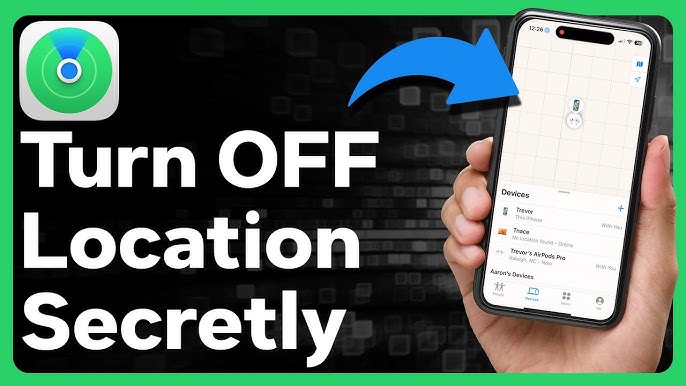How to track the location of the TextPlus number: Tracking the location of a TextPlus number is a complex process due to the app’s design, which prioritizes user privacy. TextPlus is a popular VoIP (Voice over Internet Protocol) service that allows users to send texts and make calls using a virtual number without revealing their actual phone number. These numbers are typically not tied to a physical location, as they rely on internet connections rather than traditional phone networks.
Because of this, finding the precise geographic location of a TextPlus user through their number alone is nearly only possible with legal access to the app’s backend data. Even with legal processes in place, TextPlus assigns numbers from a shared pool, which often obscures the user’s true identity and location. The most effective way to obtain information about a number, such as the general region or IP address, is through legal channels involving law enforcement and cooperation with the service provider. Tracking a number’s location under proper legal authority ensures compliance with privacy laws while safeguarding user confidentiality. It’s essential to respect user privacy and only pursue tracking if legal procedures back a legitimate reason there’s.
Read Also: How to See the History of Users That Used My Mobile Hotspot
What is TextPlus and How Does It Work?
TextPlus is a mobile application that provides users with a free or low-cost communication service through VoIP (Voice over Internet Protocol) technology. It allows users to send text messages, make voice calls, and share multimedia over the internet using a virtual phone number rather than a traditional mobile phone number.
How Does TextPlus Work?
- VoIP Technology: TextPlus operates through VoIP, which means that instead of relying on a cellular network,
- Virtual Number: Upon signing up, users are assigned a virtual number, which they can use to communicate, just like a regular phone number. This number can be customized by choosing an area code based on availability.
- Cross-Platform Support: The app is available on both iOS and Android devices, and the virtual number can be used across different devices.
- Privacy: TextPlus numbers are not directly linked to the user’s personal information or physical location, providing an extra layer of privacy.
- Low-Cost or Free Communication: TextPlus allows free texting and low-cost calls to standard phone numbers in various countries, making it a popular option for users looking for affordable communication solutions.
The app is commonly used for international texting, calls, and anonymous communication.
Challenges in Tracking TextPlus Numbers
Use of Virtual Numbers
TextPlus provides users with virtual numbers that are not linked to a particular device or physical location. These numbers are part of a pool, making it difficult to pinpoint a user’s physical location or identity through the number alone.
IP-Based Communication
Tracing an IP address might give clues to a user’s internet service provider or general region, but this is only sometimes reliable or precise.
Anonymity and Privacy Features
The app’s design prioritizes user anonymity. TextPlus does not require users to provide extensive personal information, allowing users to create accounts with minimal identifying details, which further complicates tracking efforts.
Global Accessibility
Since TextPlus allows users to select numbers from various regions or area codes, the location tied to the number may not reflect the user’s actual location, adding another layer of difficulty in identifying where the user is physically located.
Legal Restrictions
Tracking a user’s location without their consent or legal authorization is illegal in most jurisdictions. Access to TextPlus records or other identifying information often requires law enforcement involvement and a court order, limiting tracking capabilities for general users.
Encryption and Security
VoIP services like TextPlus often employ encryption to protect user data and communications, which adds another level of complexity to efforts to monitor or track communications.
Legal Considerations for Tracking TextPlus Numbers
Tracking a TextPlus number involves several legal considerations, as it may infringe upon privacy rights and data protection laws. Here are critical legal aspects to consider:
Privacy Laws
Most countries have strict privacy laws that protect individuals from being tracked without their consent. Tracking a TextPlus number or accessing a user’s information without permission can be a violation.
Consent Requirement
In many jurisdictions, tracking someone’s communications or location requires their explicit consent. Without permission from the individual, attempting to trace a TextPlus number could be illegal. Exceptions to this rule may apply when law enforcement agencies are involved.
Need for a Court Order
To legally track a TextPlus number, law enforcement authorities generally need to obtain a court order or subpoena. These legal instruments allow authorities to request data from TextPlus, such as IP addresses or account information, to aid investigations related to criminal activity.
Wiretapping and Surveillance Laws
Tracking communications, including calls and messages, may fall under highly regulated wiretapping laws. Unauthorized monitoring of communications through apps like TextPlus.
Cross-Border Data Issues
Since TextPlus users can communicate across borders, tracking a number may involve international legal complexities. Different countries have varying laws regarding data access and tracking, and cooperation between countries may be required to pursue legal monitoring.
User Anonymity Protection
VoIP services, including TextPlus, often prioritize user anonymity and privacy, which is protected by legal frameworks. Attempting to bypass these protections may result in legal consequences for the person trying to track the number.
Law Enforcement Procedures
Suppose the tracking is for legitimate purposes, such as investigating fraud or criminal activity. In that case, law enforcement agencies must follow established procedures, including presenting probable cause to a judge before tracking or requesting data from TextPlus.
Tracking a TextPlus number without legal authorization can lead to violations of privacy laws and severe legal consequences. Legal processes must be followed, and tracking should only be done under appropriate legal conditions, typically by law enforcement.
The Role of Law Enforcement in TextPlus Tracking
TextPlus numbers, particularly in cases where illegal activities, fraud, or criminal behavior are suspected. Since TextPlus prioritizes user privacy and anonymity, tracking the location or identity of a user typically requires legal intervention. Here’s how law enforcement is involved in the process:
Obtaining a Court Order or Subpoena
Law enforcement agencies can only directly track a TextPlus number with proper legal authorization. To obtain user information from TextPlus, law enforcement must present a valid court order, warrant, or subpoena. This requires demonstrating probable cause that the number is being used in connection with illegal activities such as fraud, harassment, or criminal threats.
Requesting User Data
Once a court order is granted, law enforcement can request specific data from TextPlus. This data may include the account information used to register the TextPlus number, IP addresses associated with the account, timestamps, and possibly the location of the device when the account was accessed. TextPlus is legally obligated to comply with such requests under applicable laws.
Tracking IP Addresses
While TextPlus numbers are virtual, they still require internet access, which means a user’s IP address can be logged. Law enforcement may track the user’s IP address to identify the general geographic location of the user or the internet service provider (ISP). This data can help law enforcement narrow down the location of the person using the TextPlus number.
Cooperating with International Authorities
In cases involving cross-border activities, law enforcement agencies may collaborate with international law enforcement bodies. This is especially important when tracking TextPlus numbers used for activities such as scams or cybercrime, which often involve users located in different countries. Mutual legal assistance treaties (MLATs) and international agreements help facilitate cooperation between law enforcement agencies across borders.
Investigating Criminal Behavior
Law enforcement’s role is particularly relevant in investigating criminal behavior conducted through TextPlus, such as harassment, threats, cyberstalking, or illegal transactions. When a legitimate investigation is underway, law enforcement may use TextPlus data as part of a broader investigative effort to apprehend suspects or prevent unlawful activity.
Adhering to Legal Frameworks
Law enforcement must adhere to all applicable legal frameworks, such as wiretapping and surveillance laws, to ensure that tracking efforts are legal and admissible in court. Unauthorized or improperly conducted tracking can lead to violations of privacy rights and may render any evidence collected inadmissible in legal proceedings.
Protecting User Privacy
Even during investigations, law enforcement must balance the need for tracking with respecting user privacy. Tracking a TextPlus number is only permissible under specific conditions, and access to personal data is tightly regulated to prevent abuse.
Law enforcement’s role in tracking a TextPlus number is regulated by legal procedures, requiring court orders, cooperation with the service provider, and adherence to privacy and surveillance laws. Their involvement is essential when there is reasonable suspicion of criminal activity linked to a TextPlus number.
Frequently Asked Questions
Can I trace a TextPlus number back to the person who owns it?
It is difficult to trace a TextPlus number back to a specific person because users can register with minimal personal information, often remaining anonymous. Law enforcement may be able to access this data legally.
How do law enforcement agencies track TextPlus numbers?
Law enforcement typically tracks TextPlus numbers by obtaining a court order to request the user’s account details, including IP addresses, from the service provider. This helps them identify the user’s location or other critical information.
Is there a way to track TextPlus numbers without legal intervention?
No, tracking a TextPlus number without legal intervention is not possible or legal. Any attempt to do so could violate privacy laws and result in legal consequences.
Can TextPlus numbers be used for fraudulent activities?
Yes, some users may exploit the anonymity of TextPlus numbers for fraudulent activities, such as scams or phishing. If you suspect illegal activity, you should report it to authorities, who can investigate with legal tools.
Can TextPlus users change their number to avoid tracking?
Yes, TextPlus allows users to change their virtual number, making it even more challenging to track them. This feature adds another layer of anonymity and privacy for users.
Conclusion
Tracking the location of a TextPlus number is a complex and legally sensitive task due to the app’s emphasis on user privacy and its use of virtual, internet-based numbers. Unlike traditional phone numbers, TextPlus numbers are not tied to a specific geographic location or device, making it difficult to trace them without access to internal app data. While general users cannot track these numbers, law enforcement can pursue tracking if there is evidence of illegal activity, using court orders to request data like IP addresses or account information. However, without proper legal authority, tracking a TextPlus number is not only challenging but also illegal, highlighting the importance of respecting privacy laws and only pursuing such actions when legally justified.

